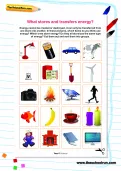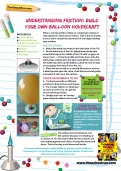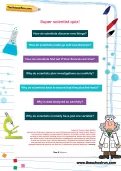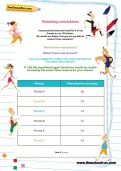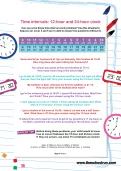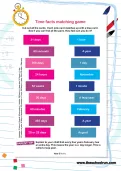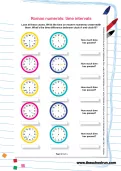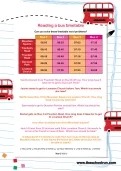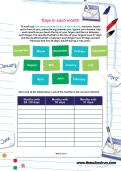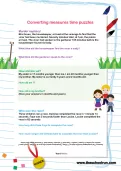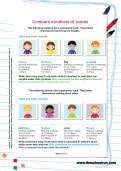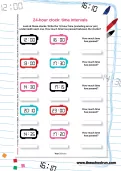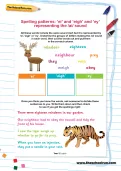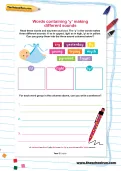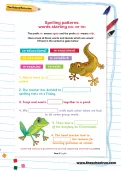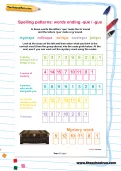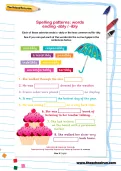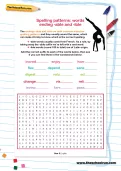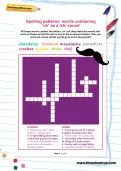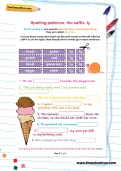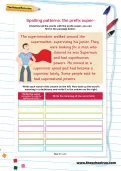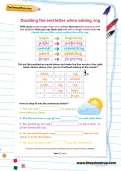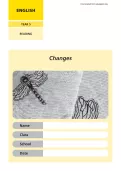The two personal pronouns I and me are often used incorrectly. Find out when to use each one and then correct the sentences.
or
Register to add to your saved resources
Already a subscriber? to view this content.
Can you solve these time interval word problems? Use this timeline to help you (or cover it up if you're able to answer the questions without it).
or
Register to add to your saved resources
Already a subscriber? to view this content.
Cut out all the cards. Each pink card matches up with a blue card. See if you can find all the pairs. How fast can you do it?
or
Register to add to your saved resources
Already a subscriber? to view this content.
Look at these clocks. Write the time (in modern numbers) underneath them. What’s the time difference between clock A and clock B?
or
Register to add to your saved resources
Already a subscriber? to view this content.
Can you solve these timetable word problems?
or
Register to add to your saved resources
Already a subscriber? to view this content.
Here's a simple way to remember how many days there are in each month. Now see if you can fill in the table correctly.
or
Register to add to your saved resources
Already a subscriber? to view this content.
Can you solve these three word puzzles? You'll have to convert between different measures of time...
or
Register to add to your saved resources
Already a subscriber? to view this content.
The following children did a sponsored swim. They timed themselves swimming ten lengths. Write down how long it took each child (in minutes) to swim their ten lengths. Who completed the ten lengths the fastest? Who completed the ten lengths the slowest?
or
Register to add to your saved resources
Already a subscriber? to view this content.
Look at these clocks. Write the 12-hour time (including am or pm) underneath each one. How much time has passed between the clocks?
or
Register to add to your saved resources
Already a subscriber? to view this content.
All these words include the same sound (/ai/) but it is represented by ‘ei’,‘eigh’ or ‘ey’. Underline the groups of letters making the /ai/ sound in each word, then cut the words out and put them in the correct column. Once you think you know the words, ask someone to dictate these sentences to you. Write them down and then check to see if you got the spellings right.
or
Register to add to your saved resources
Already a subscriber? to view this content.
Read these words and say them out loud. The ‘y’ in the words makes three different sounds: /i/ as in cygnet, /igh/ as in high, /y/ as in yellow. Can you group them into the three sound columns below?
or
Register to add to your saved resources
Already a subscriber? to view this content.
The prefix re- means again and the prefix co- means with. Have a look at these words and decide which one would fit best in the sentence gaps below.
or
Register to add to your saved resources
Already a subscriber? to view this content.
In words like antique and catalogue the letters ‘que’ make the /k/ sound and the letters ‘gue’ make a /g/ sound. Look at the clues on the left and then enter what you think is the correct word (from the group above) into the code grids below. At the end, see if you can work out the mystery word using the codes.
or
Register to add to your saved resources
Already a subscriber? to view this content.
Each of these adverbs ends in -ably or the less common suffix -ibly. See if you can put each of the words into the correct gaps in these sentences.
or
Register to add to your saved resources
Already a subscriber? to view this content.
The endings -able and -ible are both common adjective spelling patterns and they usually sound the same, which can make it tricky to know which is the correct spelling. Add the correct suffix to each of these words then see if you can find them in the wordsearch.
or
Register to add to your saved resources
Already a subscriber? to view this content.
All these words contain the letters ‘ch’ but they make the sound /sh/. Each of these words fits with a clue in the crossword below. Can you work out where all the words go to solve the puzzle?
or
Register to add to your saved resources
Already a subscriber? to view this content.
Words ending -ly are used to describe how something is done; they are called adverbs. Cut out these cards and match up the root words on the left with the suffix -ly on the right, then decide which words go in each sentence.
or
Register to add to your saved resources
Already a subscriber? to view this content.
Underline all the words with the prefix super- you can find in the passage. Then write each word in the column on the left. Now look up the word’s meaning in a dictionary and write it in the column on the right.
or
Register to add to your saved resources
Already a subscriber? to view this content.
Most words longer than one syllable that have the stress on the last syllable when you say them and end with a single consonant, we double the last letter when adding the suffix -ing. Can you cut out the jumbled-up cards and make the five -ing words? Then see if you can fit them into the sentences.
or
Register to add to your saved resources
Already a subscriber? to view this content.
In Y3, Y4 and Y5 optional SATs testing was used in schools prior to 2016 to track pupils' progress in English and maths. This official Y5 English SATs paper from 2006, free to download, can be used as an at-home revision and study aid.
or
Register to add to your saved resources
